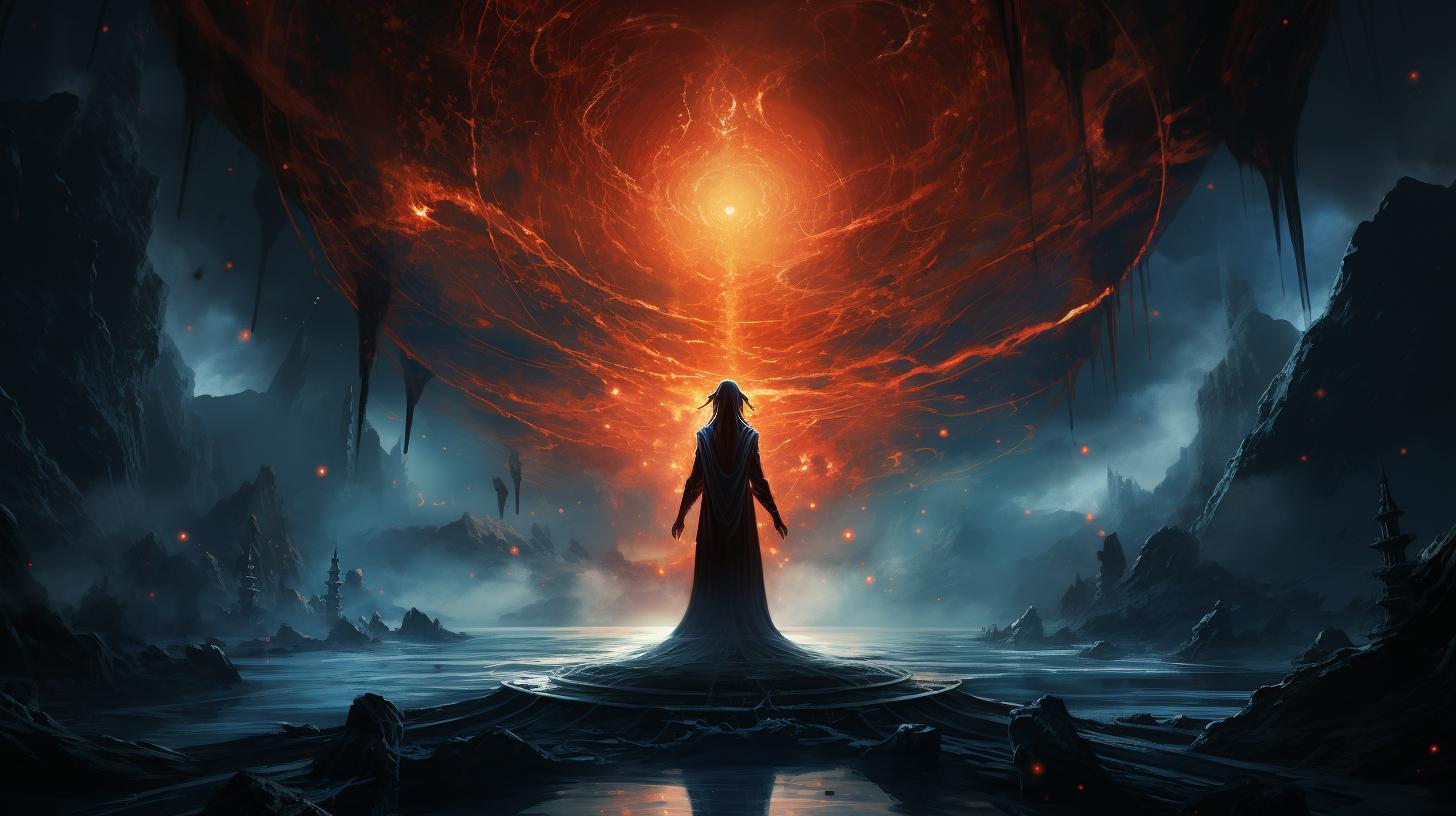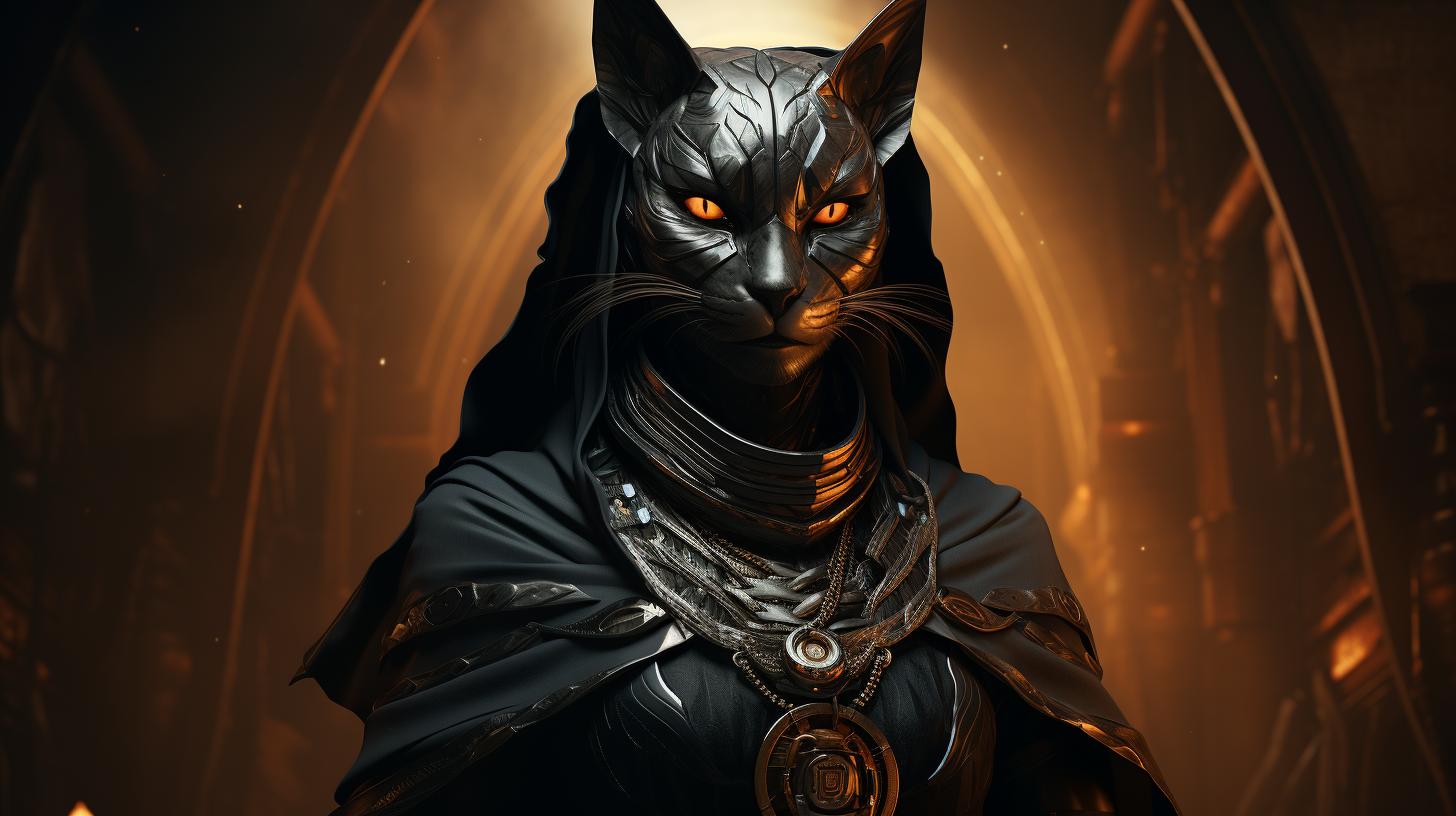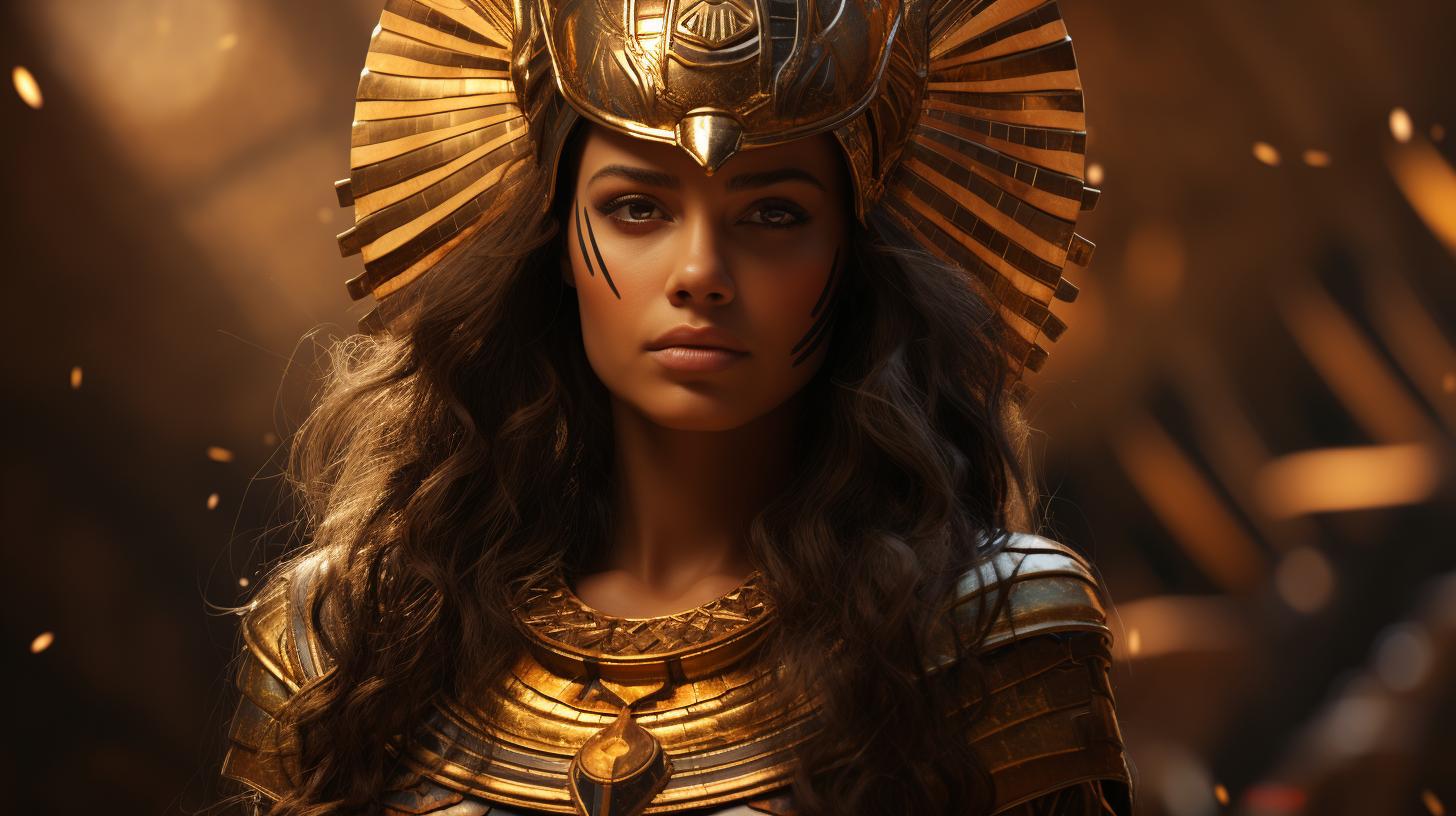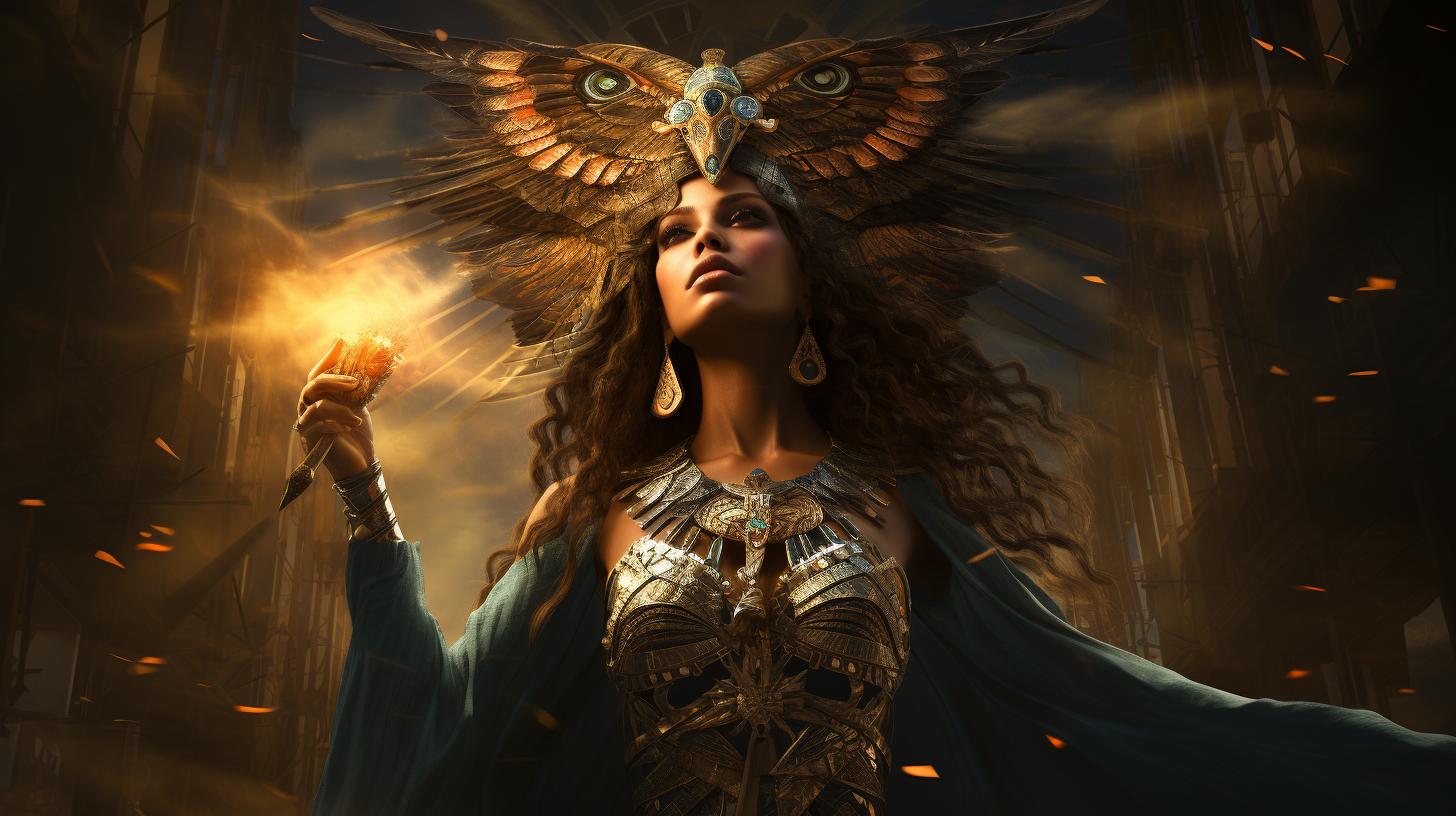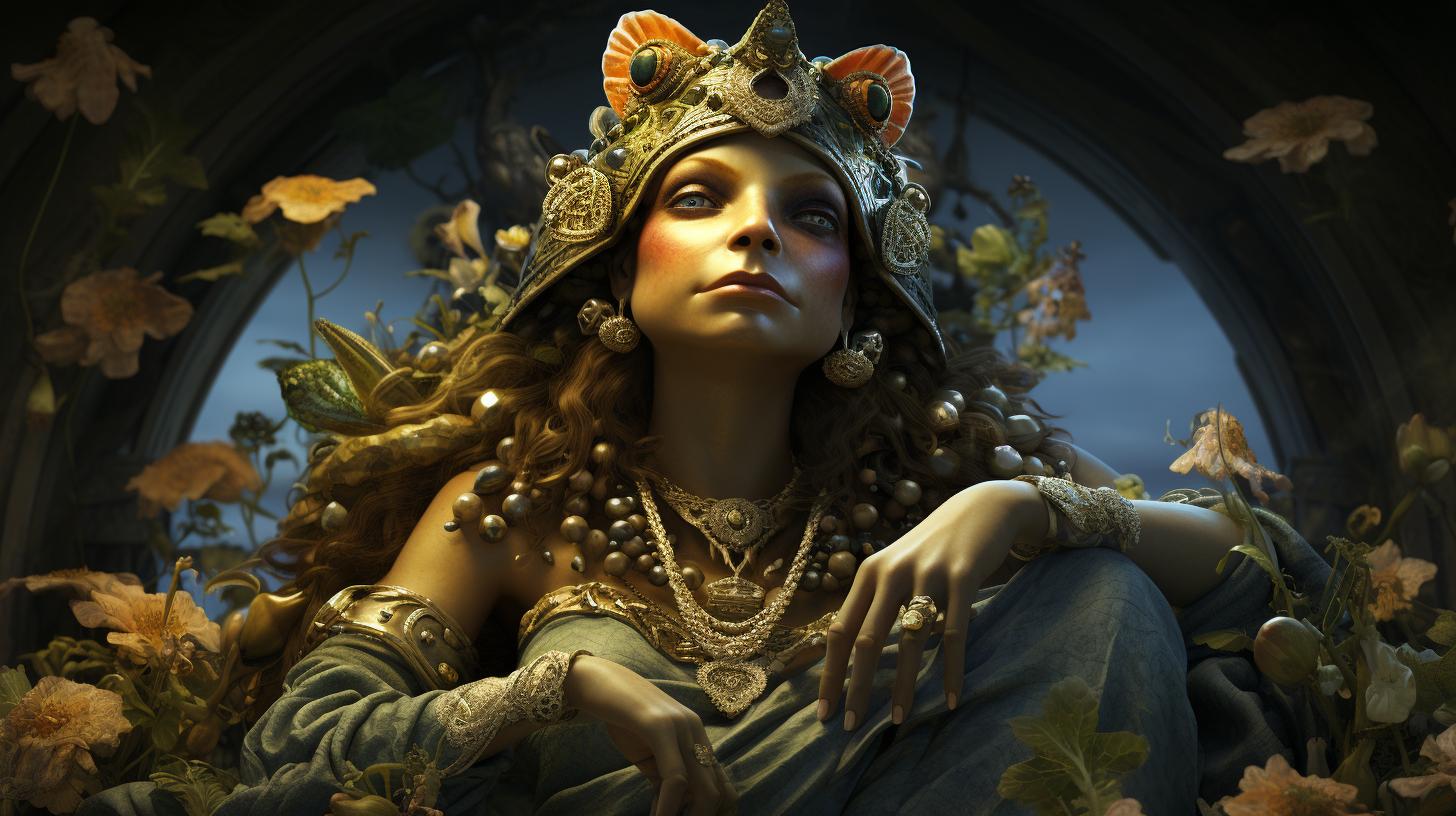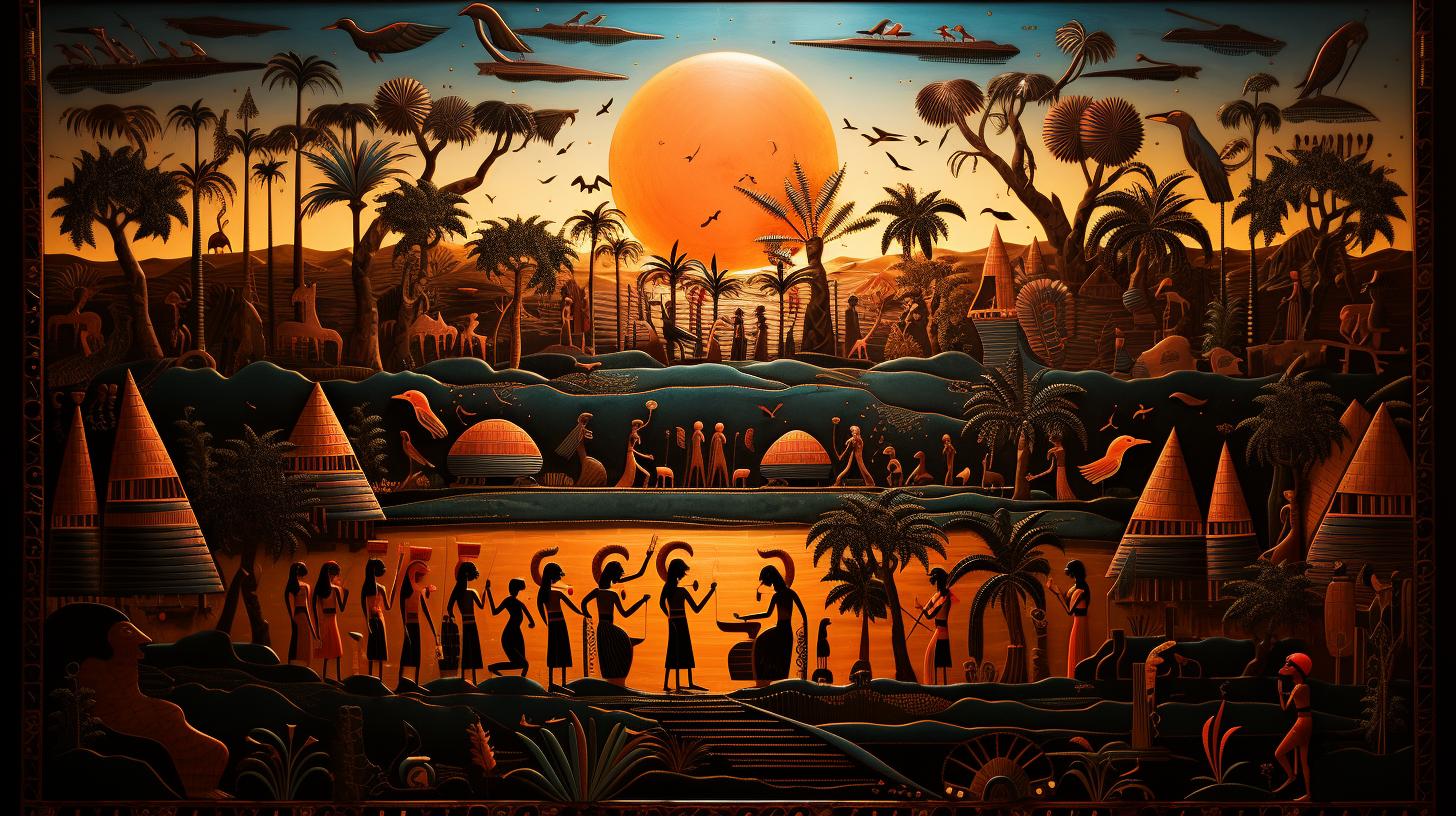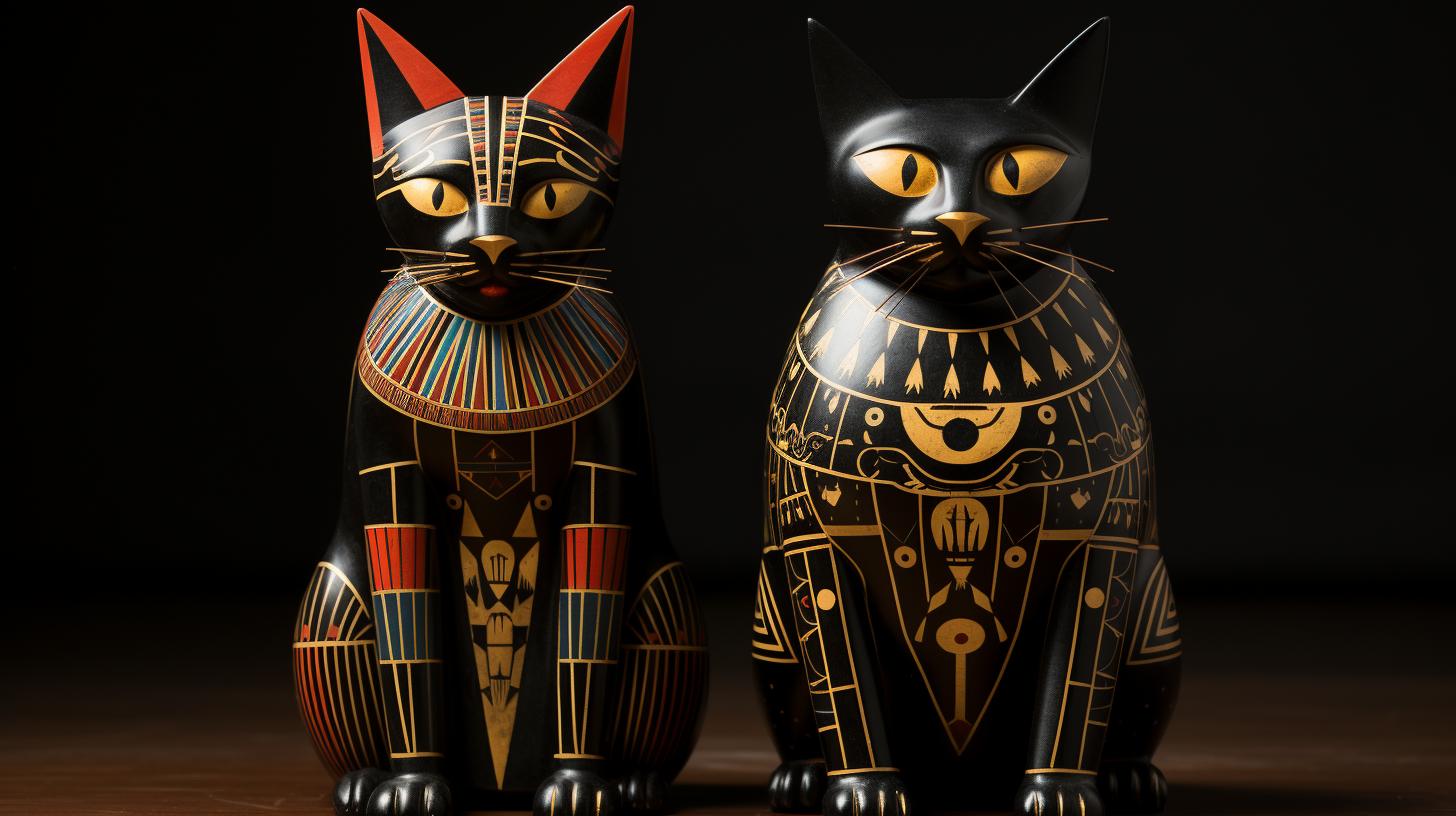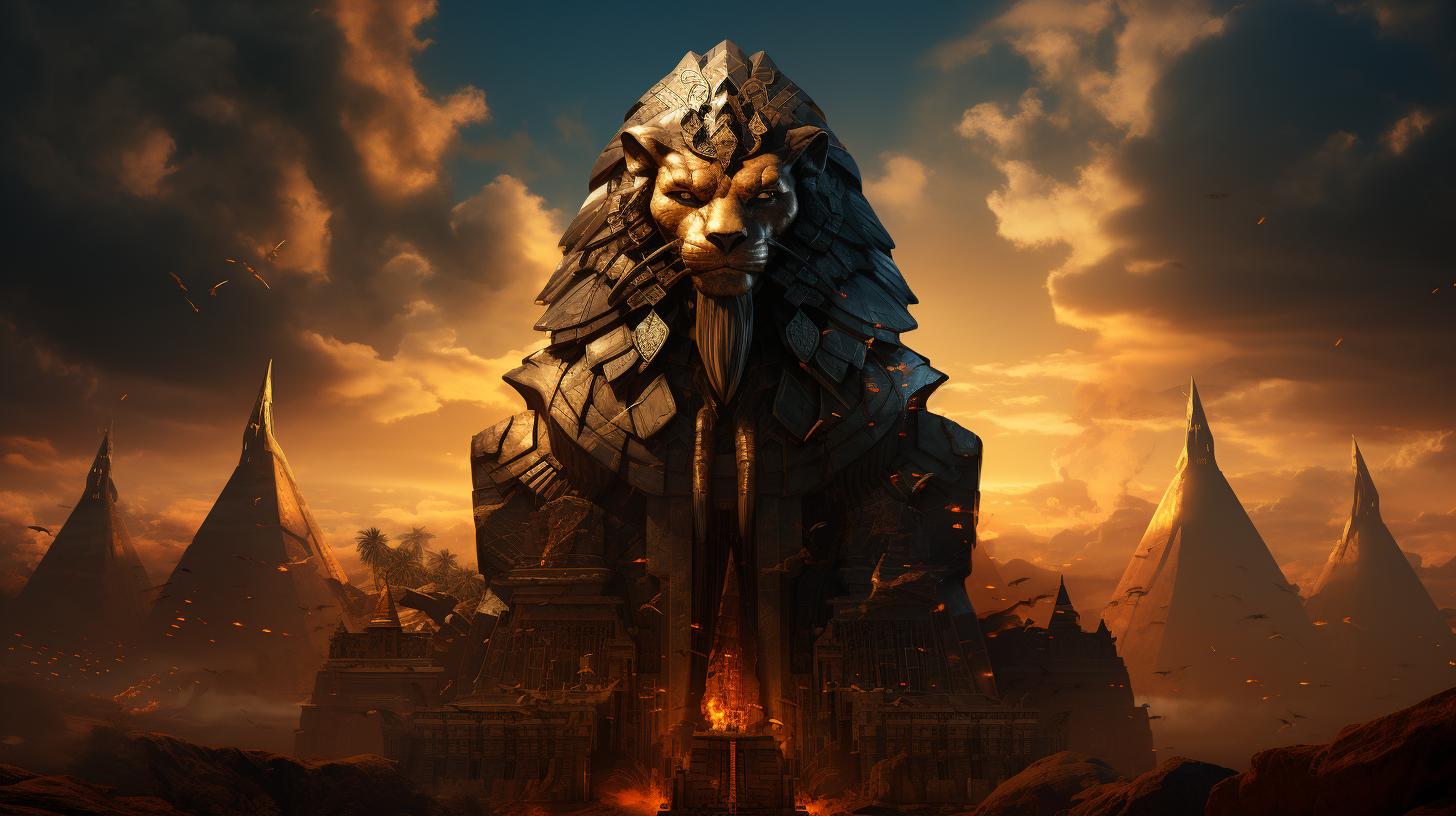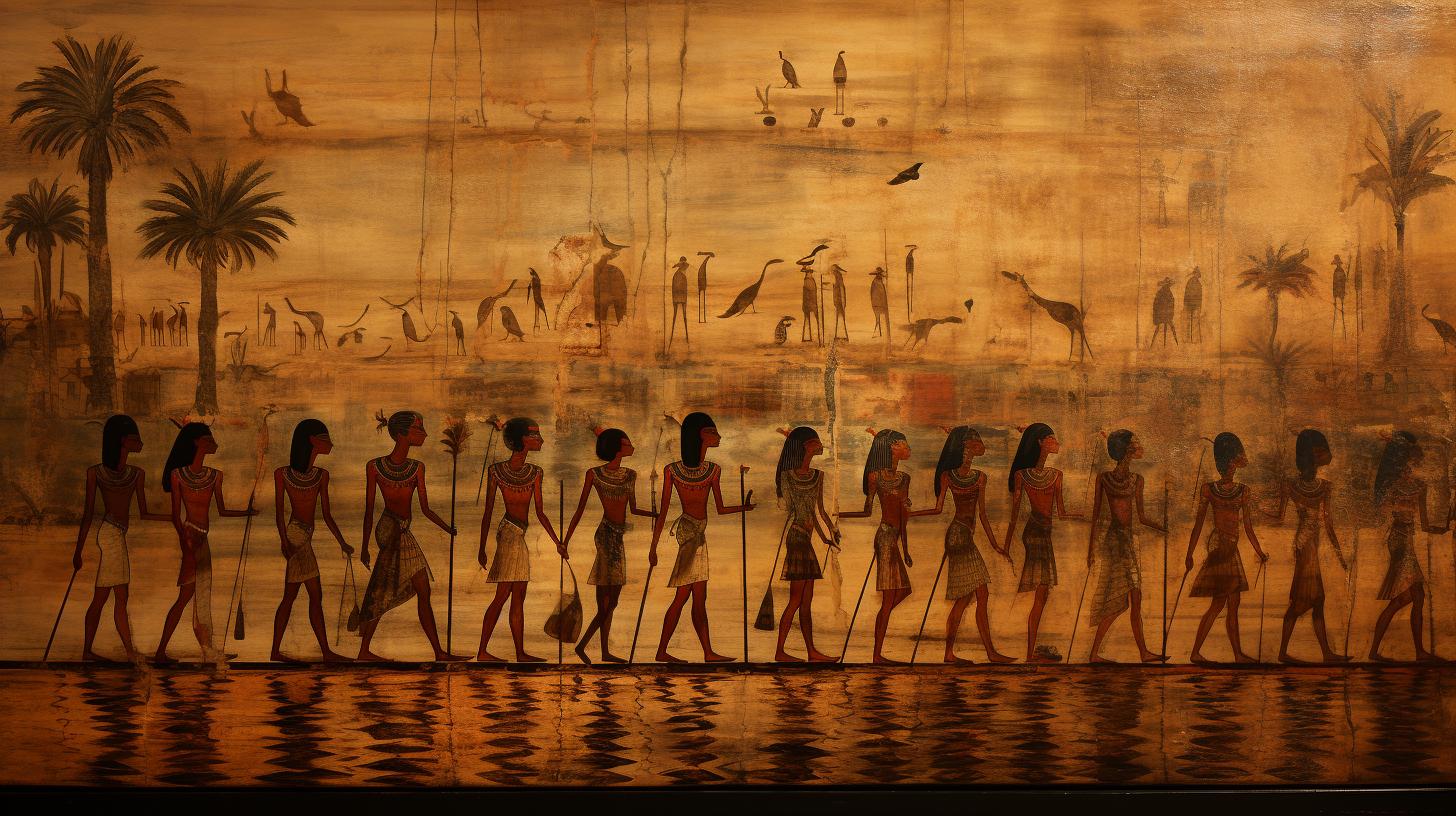How Did the Ancient Egyptian God Atum Create the Universe
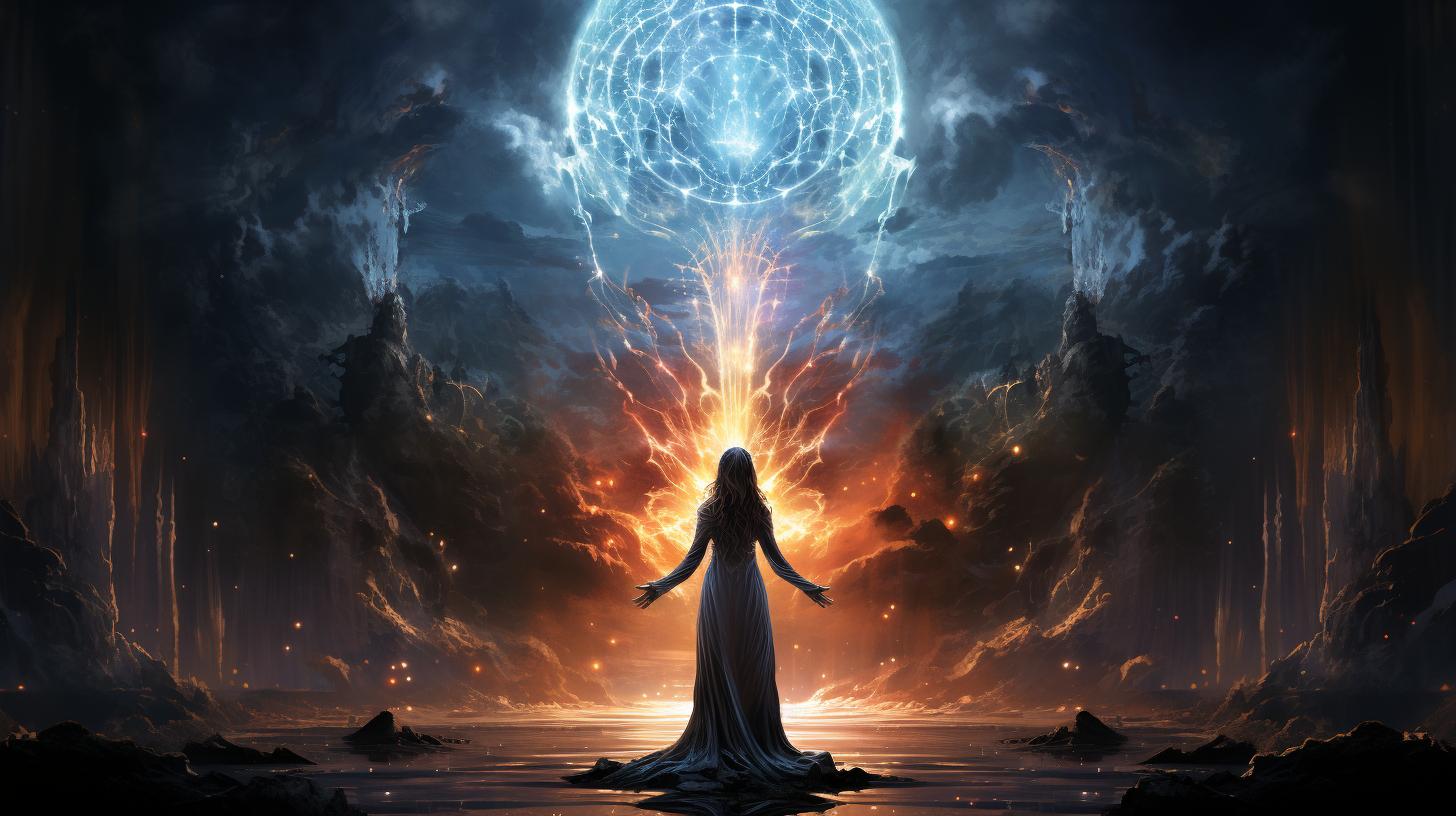
Atum, the ancient Egyptian primordial god, is believed to have created the universe. Associated with the sun and the underworld, Atum is the father of gods Shu and Tefnut. He is revered throughout Egypt, particularly in Heliopolis.
Atum’s role in the creation of the universe involves spitting or creating Shu and Tefnut, as well as being the creator of the first gods and deities. In ancient Egyptian culture, Atum’s masturbation was considered a creative act.
These beliefs and practices surrounding Atum’s worship and his connection to the end of the world are explored in this article.
Atum: The Ancient Egyptian Primordial God
Atum is an intriguing figure in ancient Egyptian mythology, revered as the primordial god who played a significant role in the creation of the universe. As the creator god, Atum holds a prominent position in the religious beliefs and practices of the ancient Egyptians.
Let us delve into Atum’s origins, associations with the sun and the underworld, as well as his parentage and relationship with other deities.
Origins and Associations with the Sun and Inframundo
Atum is closely linked to the concept of creation and is often depicted as a solar deity, embodying the sun’s life-giving energy and illuminating the world. The ancient Egyptians believed that Atum emerged from the primordial waters, bringing light and order into existence.
In this sense, Atum symbolizes the rising sun and represents a divine force associated with renewal and rebirth.
Additionally, Atum holds a unique connection with the underworld, a realm associated with death and the afterlife in ancient Egyptian belief. As the sun sets at the horizon, it was believed that Atum descended into the underworld, assuming a role in the cycle of life and death.
This connection showcases the duality of Atum’s nature, encompassing both creation and the mysteries of the afterlife.
Parentage and Relationship with Shu and Tefnut
Atum is considered the father of the gods Shu (god of air) and Tefnut (goddess of moisture), further expanding his significance in the Egyptian pantheon. According to myth, Atum brought forth Shu and Tefnut through his act of spitting or creation.
This act represents the divine separation between the elements of air and moisture, contributing to the order and balance of the universe.
Shu and Tefnut, in turn, gave rise to other deities and cosmic forces, signifying the interconnectedness of Egyptian mythology. As the progenitor of these prominent deities, Atum’s role as the primordial creator becomes even more profound and essential in the overall cosmology of ancient Egypt.
Atum’s Role in the Creation of the Universe
In the ancient Egyptian mythos, Atum played a pivotal role in the creation of the universe. This section explores his involvement in this cosmic event and delves into the various aspects of his creative power.
Atum’s Spitting or Creation of Shu and Tefnut
One significant aspect of Atum’s creative power is attributed to his divine act of spitting, which resulted in the creation of the gods Shu and Tefnut. According to myth, Atum spat or, in some versions, sneezed them into existence.
Shu became the god of air and Tefnut the goddess of moisture, representing the elemental forces in the early universe.
Atum as the Creator of the First Gods and Deities
As the primordial deity, Atum is revered as the progenitor of the first gods and deities in the Egyptian pantheon.
It is believed that he brought forth various divine entities and established their roles in the universe. Atum’s creative power extended beyond the initial act of creation, shaping the celestial and earthly realms.
The Significance of Atum’s Masturbation as a Creative Act
In ancient Egyptian culture, Atum’s masturbation was perceived as a powerful and essential creative act. It symbolized his ability to generate life and was associated with fertility and abundance. This unique interpretation highlights the deep connection between sexuality, creation, and the divine essence of Atum within their cosmology.
Worship and Beliefs Surrounding Atum
In ancient Egyptian culture, Atum held a significant position as a primordial god and was widely worshipped throughout the land. His main center of worship was in Heliopolis, where he was revered as a central figure in religious rites and ceremonies.
Atum’s Worship and Cult Center in Heliopolis
Heliopolis, also known as “Iunu” in ancient Egypt, was an important religious and cultural hub. It served as the primary cult center for Atum, attracting devotees from all corners of the kingdom.
At the heart of Heliopolis stood grand temples dedicated to Atum, where elaborate rituals and offerings were conducted to honor him.
Sexual Practices, Marriage, and Fertility in Ancient Egyptian Culture
The ancient Egyptians perceived sexual practices and fertility as deeply intertwined with their religious beliefs. These aspects held great significance, as they were considered integral to the continuous existence and prosperity of both human beings and the cosmos.
Marriage, family, and procreation were not only highly valued but were also deemed divine responsibilities.
Moreover, the act of masturbation had a unique association with Atum, the creator god. In ancient Egyptian belief, male masturbation was viewed as a creative or magical act, symbolizing the potential for fertility and creation.
It was connected to Atum’s ability to bring forth life and divine energy, making it a revered practice rather than a taboo subject.
Atum’s Role in the End of the World
In ancient Egyptian mythology, Atum played a significant role as the one responsible for the ultimate fate of the universe. It was believed that Atum would be the one to bring about the end of the world, resulting in its renewal and rebirth.
This concept of cycles of creation and destruction held profound meaning for the ancient Egyptians, reflecting their understanding of the cosmos and the continual cycles of life.
Ancient Egyptian Creation Myths and Atum’s Importance
The ancient Egyptian creation myths hold great significance in understanding the importance of Atum, the primordial god, in the creation of the world and its subsequent existence.
These myths, passed down through generations, shed light on the beliefs and cosmology of the ancient Egyptians.
The Heliopolitan Creation Myth
One of the most prominent creation myths in ancient Egypt is the Heliopolitan creation myth, which centers around Atum’s role in the creation of the universe. According to this myth, Atum came into existence through self-creation, emerging from the primordial waters of chaos.
He then proceeded to create other deities and the world itself.
Atum’s act of self-creation reflects the Egyptians’ belief in the power of self-generating forces and the divine origin of their world.
The Heliopolitan creation myth establishes Atum as the ultimate creator, laying the foundation for the subsequent pantheon of gods and the order of the universe.
Depictions of Atum in Pyramid Texts and Other Ancient Egyptian Texts
Depictions of Atum can be found in various ancient Egyptian texts, including the Pyramid Texts, which are religious texts inscribed on the walls of pyramids.
These texts provide valuable insights into the religious beliefs regarding Atum and his creative role in the universe.
The Pyramid Texts depict Atum as the creator of all things, often referenced as the “Lord of All” or the “Father of the Gods.”
Atum’s creative power and his connection to the sun are emphasized, solidifying his significance in the ancient Egyptian cosmology.
Atum’s Connection to the Creation of the World and Solar Mythology
Atum’s link to the creation of the world is deeply tied to his association with the sun. The ancient Egyptians believed that Atum, as the solar deity, brings life and sustenance to the world through his daily journey across the sky.
Atum’s connection to solar mythology further reinforces his role as the creator and sustainer of the universe. Just as the sun rises and sets, Atum symbolizes the continual cycle of creation and renewal, embodying the eternal nature of existence.

